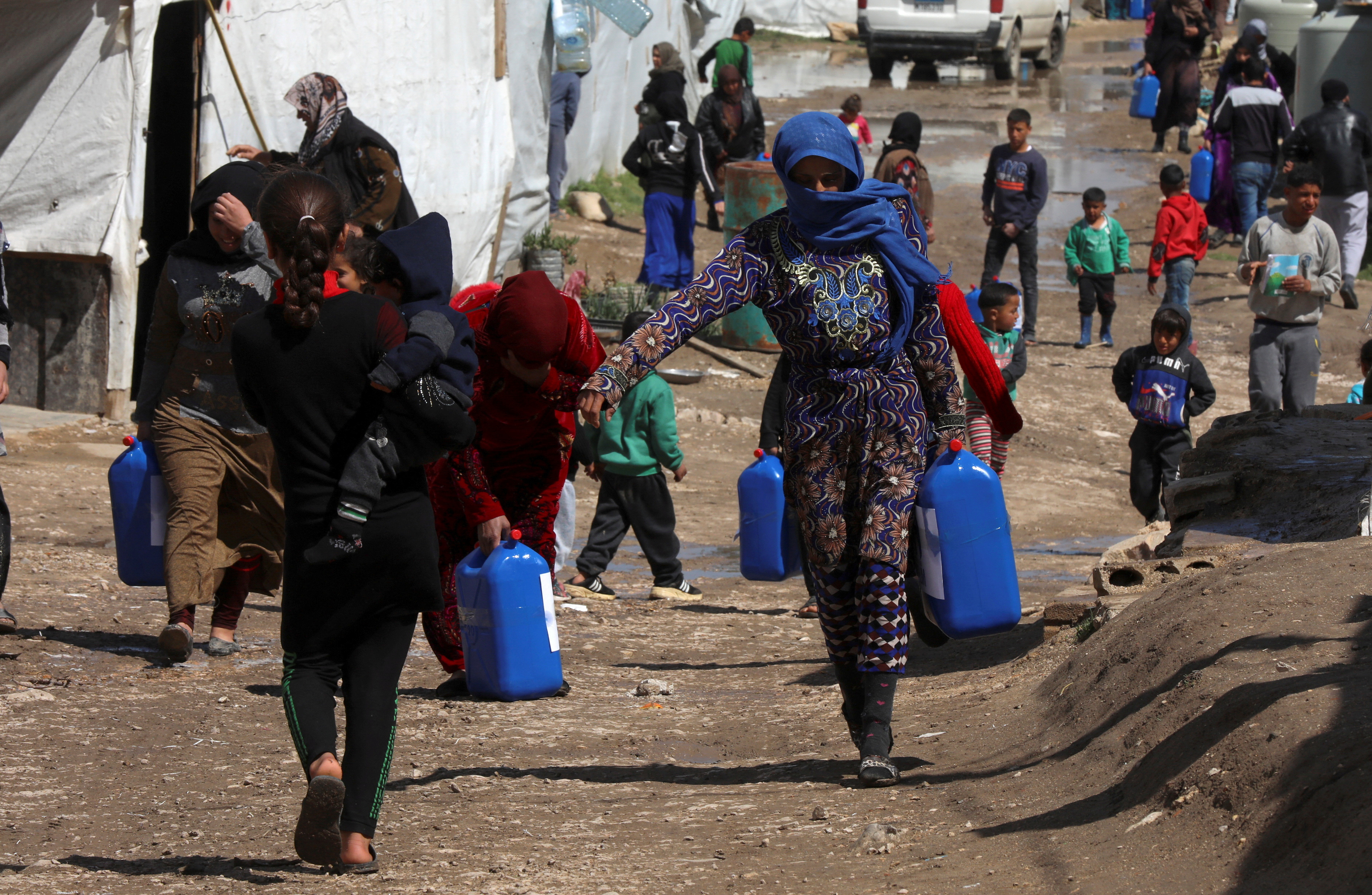Who thinks or talks about Syria anymore?
Syria has become a forgotten crisis that nobody wants to stir amid the war raging between Israel and Hamas and tensions growing between Iran and Western powers over its regional activities.

More than 5 million refugees mostly in Lebanon and Turkey and millions more displaced internally have little prospect of returning home with political stability no closer than since the uprising against President Bashar al-Assad’s rule began in 2011.
Funding to support them is dropping with the likes of the World Food Programme reducing its aid. Difficulties to host refugees are surfacing, notably in Lebanon, where the economic situation is perilous and a call to send Syrians home is one of the rare issues that unites all communities.
“We have no levers because we never resumed relations with the Assad regime and there are no indications anybody really will,”
said a former European envoy to Syria.
“Even if we did, why would Syria offer carrots to countries that have been hostile to him and especially taking back people who opposed him anyway.”
After the June 6-9 elections in West Europe, major European and Arab ministers along with key international organisations will meet for the 8th Syria conference next Monday.
With far-right and populist parties already expected to do well, there is little appetite to step up refugee support.
The conference itself has changed from eight years ago. The level of participation has been downgraded. The likes of Russia, the key actor backing Assad, is no longer invited after its invasion of Ukraine. The global geopolitical situation and drop in the conflict’s intensity keeps it off radars.
Gulf Arab states, which once contributed handsomely, appear disinterested, offering few – none in 2023 – commitments, though unlike their European partners, some have re-engaged with the Assad government given the realities on the ground.
Beirut’s objective is to bring back to regions considered safe in Syria all the migrants who are currently in the country of the cedars without official documents, which excludes those who have work permits. At the same time, government leaders intend to be careful not to expel opponents, who risk being arrested by the Damascus intelligence services if they return home.
The European Union, for its part, still shows strong opposition to their return, in this case for reasons of political expediency although, at least officially, it claims to fear massive human rights violations by the regime of President Bashar al- Assad.
“However, even for Lebanon this situation can no longer continue”
underlines MP Ziad Hawat, close to the Lebanese Forces. Citizens are now worried about the demographic growth of the Syrian refugee population, estimated at over two million people, equal to about a third of the total. These fears were rekindled in the aftermath of the murder of senior member of the Lebanese Forces Pascal Sleiman by a gang of Syrian car thieves. This “crime too many” has led to attacks and beatings against Syrians, municipal restrictions (curfews, bans on gatherings), traffic blocks and the closure by neighborhood officials of shops opened without a license by Syrian immigrants.

Read more:
- Syrians in Lebanon stay indoors as fears of xenophobic violence grow
- Divisions, elections and Assad lay bare Europe’s Syrian quagmire
- Syrian refugees: for Beirut and Damascus a source of instability, the EU allocates funds



